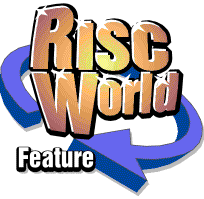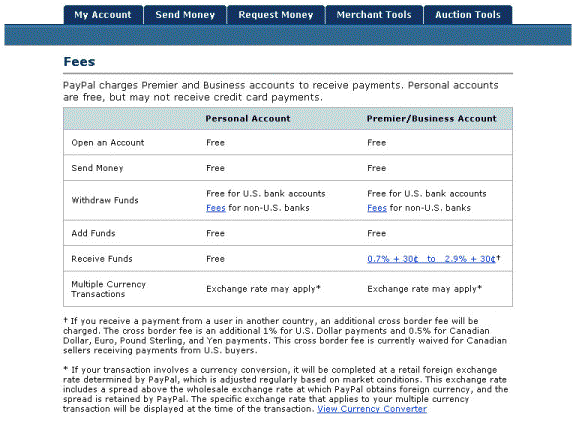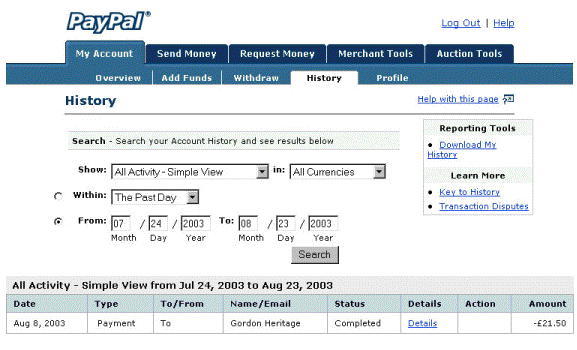



Using PayPal
Mike Battersby
If you are a regular reader of RISC World then you may have been following the series on using eBay the online auction site. One of the main features about eBay is that it brings together buyers and sellers from around the world.
However, if you are selling to another part of the world or buying from abroad there is always the question of payment.
Sending a money order in a foreign currency tends to be expensive, plus there is the cost of postage and the chance of it going astray in the post. You also have to wait for a while before receiving it, or the recipient receiving one you sent. An electronic transfer saves on the trouble with postage but is likely to be slightly more expensive and you may need to know all sorts of bank details such as the Swift code. There also tends to be a delay before it is cleared.
Enter Paypal, whereby you can use a credit card to pay instantly to another Paypal registered user, and if they are not registered you can still send the money and they will get an email telling them they have money owing which should be a sufficient incentive for them to register. Hence a lot of time can be saved as there need be no delay between making payment and the recipient having it show up in their account.
While Paypal is now owned by eBay it can be used for all sorts of payments, not just online auctions. Just last week I ordered an evaporator thermistor (a what?) for a Hotpoint fridge as we cannot get Hotpoint spares here in NZ. I ordered on the Saturday (from Milton Keynes, and paid instantly via Paypal) and it arrived in the post first thing Wednesday. Quite how it managed that I don't know as I would have expected it to take longer than that to get to our previous home in Hertfordshire. However if I had had to send a cheque by post it would have added a week to 10 days to the transaction time.
This article then, takes you through the basics of Paypal as one means of making international payments with relative ease. No visits to the bank, nothing to post and instant transference between accounts, but at a price of a commission charge.
Firstly you must register with Paypal. To do this go to www.paypal.com and fill in the registration form which is relatively straight forward. Note that to receive payments by credit card you must register as a premier user, a status which affects the fees you pay.
Once registered you can make payments to other people's Paypal accounts or receive money into your account.
Sending Money
To send money, log on and choose the Send Money tab. The form shown below appears.

In the screenshot shown the currency menu lists the currencies available to remit money i.e. US dollars, Canadian dollars, Euros, pounds or yen. Account holders have to hold money in their account or send or receive money in these currencies but can withdraw from their Paypal account into any currency. For example, if the Paypal user's account is in US dollars but has a nominated Australian bank account the money can be withdrawn into that account and credited in Australian dollars. The exchange rate that is used is Paypal's published rate at the time.
Once the details are entered and checked then the payment can be confirmed or cancelled. Once confirmed then money is transferred to the recipient's account and each party is emailed confirmation of the transaction. If the payment is for goods then a Paypal packing slip is also available for the vendor.
When you register then you nominate how payments are to be made. A common way would be the debiting of a credit card. However, the Paypal member must have a Premier or Business account rather than a personal account in order that another member can pay them via credit card.
>Receiving Money
If someone pays you money then it appears in your Paypal account or you can request money from someone, in effect invoicing them.
The money request screen is shown below.

While the individuals you bill do not need to be existing members of Paypal (neither do those you send money to), it is as well to check that they are willing to go through the necessary processes to send or receive payments.
With all receipts the money goes into your Paypal account and stays there unless withdrawn. No interest is paid on the balance. If you have a Premier or Business account then you pay a fee on money received whereas on a personal account no fee is paid to receive money. Fees are 20 pence plus a rate between 2.7 and 3.4%.
If you wish to withdraw money from your Paypal account to your bank account then a withdrawal fee is payable. The minimum amount a UK user can withdraw at one time is £10 and the withdrawal fee is 50p. The withdrawal fee applies to all accounts including the personal one. To save fees it may be better to let funds accrue and make fewer withdrawals in larger amounts.
There is also a cross border fee for payments from one country to another.

A summary of fee information is shown in the screenshot above. The premier/business account fees shown above did not seem to match the UK ones when I checked the details, particularly I found no 0.7% and the minimum I found was 2.7%.
Entry to the Paypal site is password protected and Paypal warn against giving details or logging in to any site other than paypal.com Once logged on you can get details of your account, specifying the time period etc as shown below.

The only payment shown above is for my fridge thermistor.
In summary then: Paypal allows a quick easy method of paying for items between countries. Their regulations insist that UK vendors may not charge additional fees for receiving payment this way but I have seen many who do so. By providing almost instant confirmed payment transactions are greatly speeded up. If you use Paypal via eBay links then progress of your Paypal transaction for an eBay item is shown on the item page after the auction has finished and in the relevant column in My eBay, helping to keep track of transactions.
However, there is always a price to pay for the convenience, in this case the fees charged. For a seller it is a question of balancing the cost of the fees against the gains of selling to a wider community and avoiding many of the hassles of payment by other means, which anyway have fees of their own.
Mike Battersby